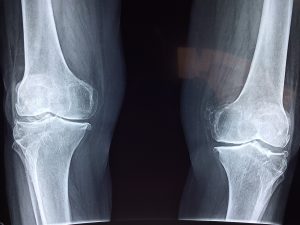 What does orthopedic and trauma medicine deal with is a common question for individuals interested in orthopedics. Orthopedic and trauma medicine deals with the musculoskeletal system, such as broken, fractured, or dislocated bones and soft tissue injuries. These orthopedic injuries could be caused by anything from a low-energy fracture in an older patient to multiple injuries caused by a road traffic accident or fall from high heights.
What does orthopedic and trauma medicine deal with is a common question for individuals interested in orthopedics. Orthopedic and trauma medicine deals with the musculoskeletal system, such as broken, fractured, or dislocated bones and soft tissue injuries. These orthopedic injuries could be caused by anything from a low-energy fracture in an older patient to multiple injuries caused by a road traffic accident or fall from high heights.
Professionals in this field are known as orthopedic and trauma surgeons (O&T surgeons). They diagnose and treat musculoskeletal system conditions, including bones, joints, and structures that enable movement, such as ligaments, tendons, muscles, and nerves.
Work environment: What does orthopedic and trauma medicine deal with?
As an O & T surgeon or another officer in this field, you’ll work with patients of all ages, often in county general hospitals, specialist medical centers, or orthopedic hospitals and clinics. For instance, Orthopedic and Trauma Medicine in Kenya deals with injuries caused by some external force, such as a severe fall or any other serious accident.
For lower cadre jobs, you can work as a technician or technologist. Orthopedic technicians, also known as orthopedic technologists, work under the direct supervision of orthopedic surgeons. They assist in the operating room, apply and remove casts, fit walking aids, and do other support duties. In summary, the duties and responsibilities of orthopaedic trauma technologists/ technicians include the following;
- Manipulating and reducing fractures and dislocations;
- Fixing and removing casts, bandages, and tractions to and from patients;
- Correcting Congenital Talipes Equino-Varus (C.T.E.V.);
- Counseling patients/clients on issues regarding orthopaedic trauma;
- Cleaning and treating superficial wounds resulting from orthopaedic trauma;
- Documenting orthopaedic and trauma cases and
- Assessing and referring patients with musculoskeletal conditions.
Entry requirements
Your first step is medical school before entering the orthopedic and trauma field. Based on your qualifications, there are different courses you can consider, including degree, diploma, or certificate courses.
- For a diploma in orthopedic and trauma medicine, you need a KCSE mean grade of C (plain) and above),
- Certificate in orthopedic and trauma medicine requirements is KCSE D+ (plus) to C- (minus)
Final word
A common question for individuals interested in orthopedics is what orthopedic and trauma medicine deals with. Orthopedic and trauma medicine deals with the musculoskeletal system, such as broken, fractured, or dislocated bones and soft tissue injuries. You can pursue a degree, diploma, or certificate course to become an orthopedic and trauma specialist.
Join the community
Is your preferred course marketable? Do not invest your time and money in "useless courses". Your future matters to us a lot. Subscribe to our newsletter for curated articles on the marketability of each course to help you make informed educational and career choices. Join now!
